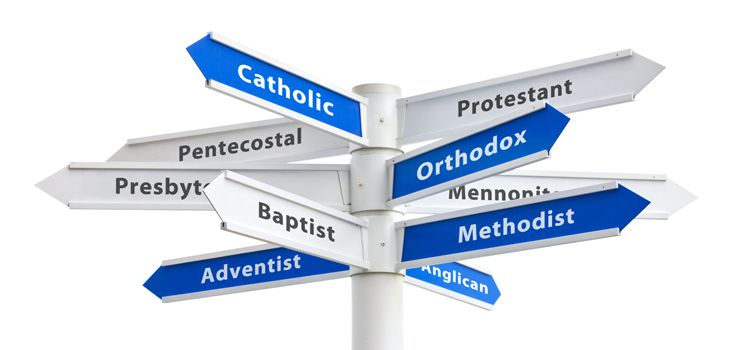You have no items in your cart.
Prayer Horizons – Week 40 / September 29th
2016Devotional 2016Devotional Blog
Now in the morning, having risen a long while before day-
light, He went out and departed to a solitary place; and
there He prayed.”
Mark 1:35
“And take up the helmet of salvation, and the sword of the
Spirit, which is the word of God; praying always with all
prayer and supplication in the Spirit, being watchful to this
end with all perseverance and supplication for all the saints.”
Ephesians 6:17-18
Prayer can be defined as talking to God. This, of course is a very simple definition of the practice and yet it is true. More definitely, prayer is working with God to bring forth His purpose in the world. This is a privilege that every Christian should shoulder. The Bible clearly teaches us that all of life is to be handled with prayer but indeed there comes a time when prayer must move away from concentrating on ourselves but rather on the will of God for the world around us. The great intercessor Rees Howells bore the prayer burden of saving Britain from Nazi invasion during the Second World War. God heard him and did just that!
Jesus invites us into a meaningful prayer life and in this study I want us to lift our horizons to see what types of prayer we can move into if we are prepared to enter this adventure with God. Prayer is hard work, it demands discipline but God does nothing without it! It is also rewarding because we observe the hand of God moving in response to it. Prayer is thus the ultimate demonstration of a life that is fully submitted to god!
The Call to Prayer
“Therefore I exhort first of all that supplications, prayers,
intercessions, and giving of thanks be made for all men,
for Kings and all those who are in authority, that we may
lead a quiet and peaceable life in all godliness and reverence.”
1 Timothy 2:1-2
It will be noted from this passage that there are different types of prayer. Namely; those that plead with God (supplications), those that please God (prayers), those that do for others what they cannot do for themselves (intercessions) and those that give thanks. It will also be noted that our state of national security and peace is dependent upon the people of God praying in these ways! No wonder Jesus said that His house should chiefly be a “house of prayer for all nations.” (Mark 11:17)
The Nature of Prayer
“For though we walk in the flesh, we do not war according
to the flesh. For the weapons of our warfare are not carnal
but mighty in God for pulling down strongholds, casting down arguments and every high thing that exalts itself against the
knowledge of God……”
2 Corinthians 10:3-5
There are five types of prayer in the scriptures and these, as far as Paul was concerned, constituted our mighty weapons for the ”left and right-hand.” At some point we need to learn how to pick them up, as our effectiveness is dependent upon it!
Responsive Prayer
This is caring and instant prayer that introduces the recipient to the love and grace of God. Jesus employed it when upon the cross He prayed, “Father forgive them, they know not what they do.” We call it the “Let’s pray model.”
Conditional Prayer
Prayer is made powerful and effective by lives that reflect the character of God. Clean lives attract the power of God. James wrote that “The effective, fervent prayer of a righteous man avails much”. (James 5:16) Peter warns that if husbands do not treat their wives in a godly way God will not hear their prayers! (1 Peter 3:7) God honors the prayers of godly men and women.
Importunate Prayer
This is the type of prayer that never gives up. It is sincere and earnest and those who utter it cast themselves on the grace and mercy of God like Cornelius did. (Acts 10:1-4) The early church also employed it on Peter’s behalf. (Acts 12:5) Jesus said, “Keep knocking and the door will be opened up to you.” (Matthew 7:7)
Battle Prayer
This type of prayer takes hold of the Word of God and its promises and holds them up before God until He does what His word proclaims. (Isaiah 62:6-7) Daniel prayed in this way and consequently great spiritual strongholds, that held the people of God captive, were brought down. (Daniel 9:1-3) A great spiritual stronghold in our nation is that of abortion. The Word of God is against it and believing Christians can bring it down but this will demand dedication and commitment. Paul acknowledged this realm of prayer when he wrote that out conflict is “not against flesh and blood but against principalities, against powers, against the rulers of the darkness of this age, against spiritual hosts of wickedness in the heavenly places.” (Ephesians 6:12) Meanwhile other spiritual strongholds are growing and threaten to engulf us with evil. We must lift our prayer horizons urgently and deal with these dark powers.
Regular Prayer
The early Church believers were together all the time in regular prayer meetings. (Acts 2:42) Prayer was undoubtedly “the lungs of the Church.” They could not survive without it and so the book of Acts states, “These all continued with one accord in prayer and supplication…” (Acts 1:14) It is from regular prayer that the local Church derives its power and we would see more evidence of the power and presence of God amongst us if more people would gather in this manner. The fact that too often the prayer meeting is the smallest weekly meeting of the local church is evidence of our spiritual weakness. We will not change our world until this changes. Indeed we will sing and shout the victory but it will remain just words! (Exodus 32:18)
The Content of Prayer
As far as Paul is concerned prayer should cover all things in life. He again wrote, “Be anxious for nothing, but in everything by prayer and supplication, with thanksgiving, let your requests be known unto God; and the peace of God, which surpasses all understanding, will guard your hearts and minds through Christ Jesus.” (Philippians 4:6-7) Prayer has more to do with our mental well being than we imagine or care to admit.. Anxiety leads to fear and fear to depression and prayer is the way out of these crippling mental disorders.
I firmly believe that we should employ the “Lego Principle” in living this out. That is, enlarge your prayer life by adding new issues and topics to it all the time; just as one adds one Lego piece to another. If you are faithful and regular in this you will not believe how God can use this and thereby entrust to you a memorial that will be raised up in heaven before Him. God answers prayer like this.
Malcolm Hedding







